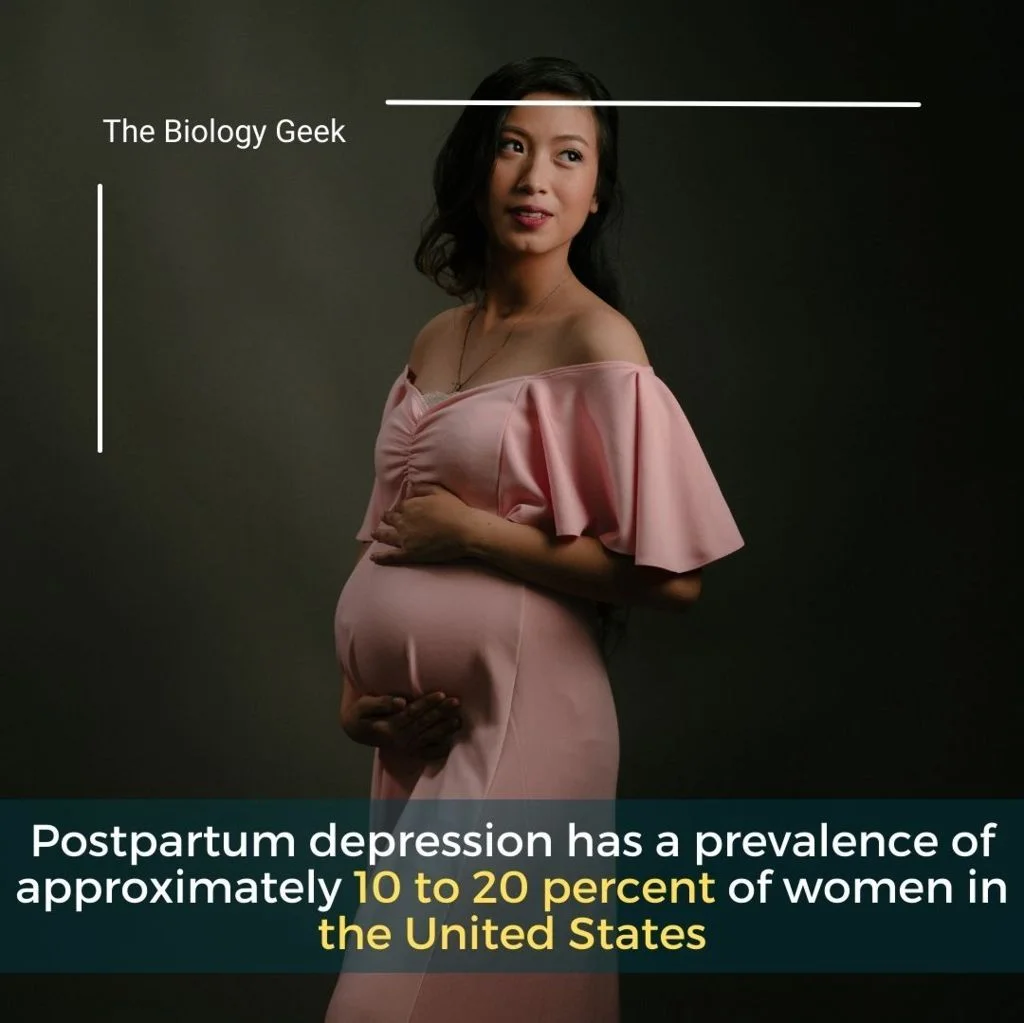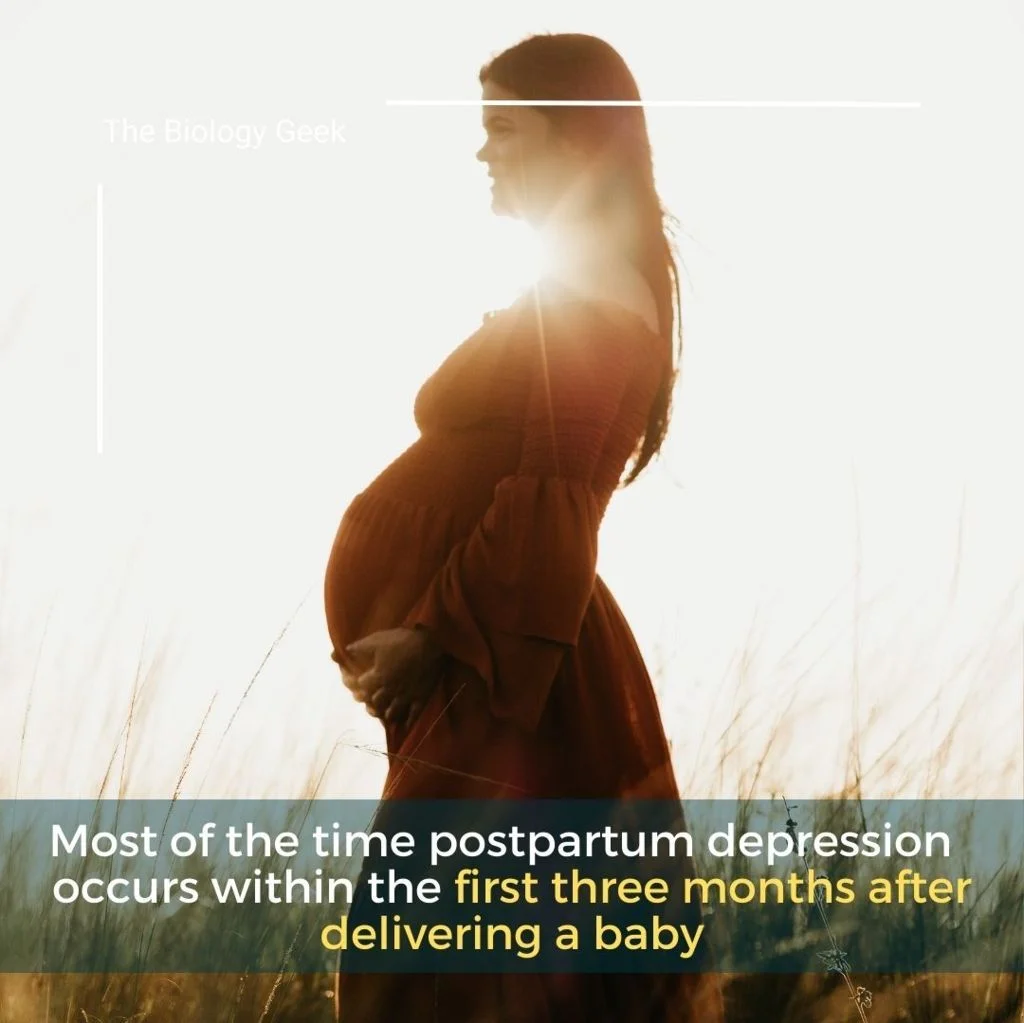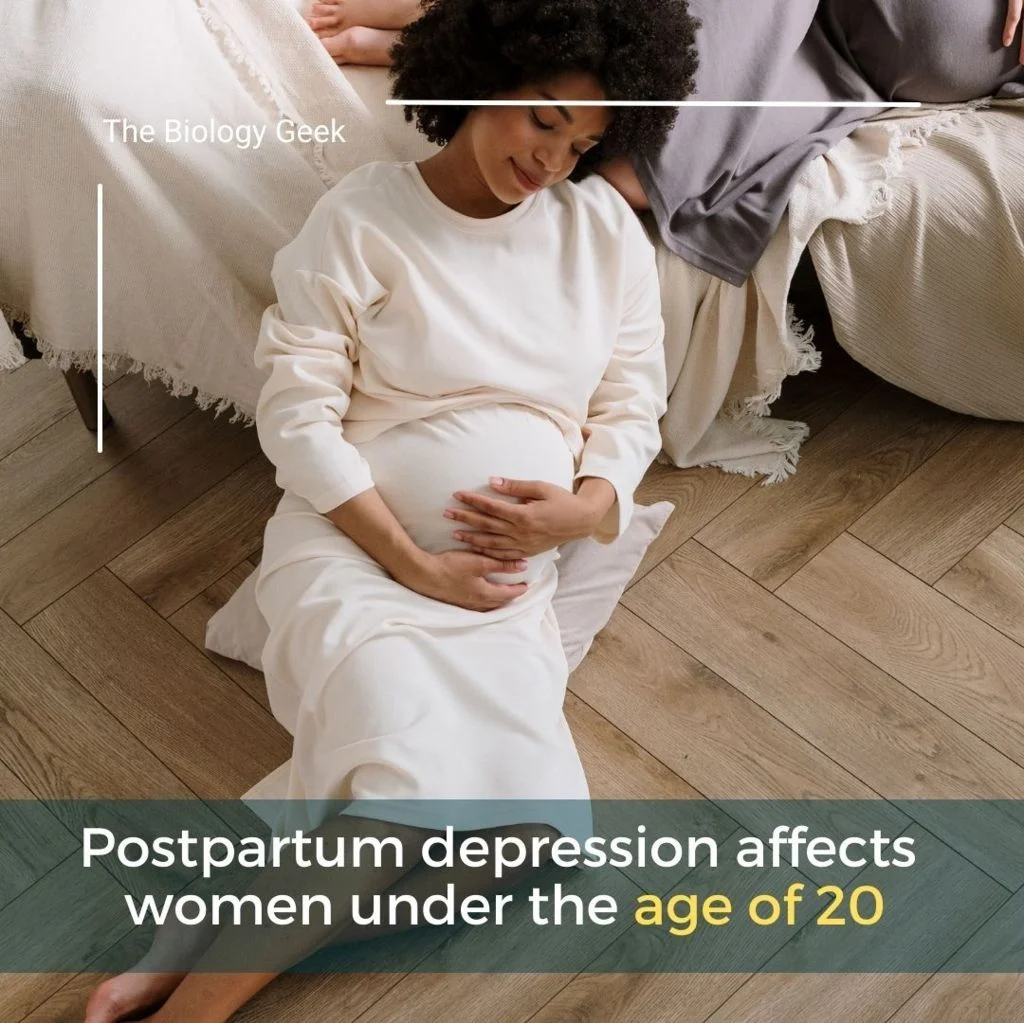What is Postpartum depression?
Postpartum depression is a common mental illness. Postpartum depression is from moderate to severe depression and it is in a woman after giving birth to a baby. Most of the time it occurs within the first three months after delivering a baby and it is not lasts forever.

What are postpartum blues?
Baby blues is a normal condition associated with feelings of sadness. That typically begins around two to five days post-delivery and symptoms will pass after two weeks. So, approximately 90% of women will experience baby blues after giving birth. On the other hand, postpartum depression is a mental illness defined in the DSM-5 as bipolar disorder or depression with peripartum onset.
What are postpartum symptoms?
One will experience postpartum depression symptoms after birth that typically begin four weeks to a year after giving birth. It can last for at least two weeks or many years. So, postpartum depression has a prevalence of approximately 10 to 20 percent of women in the United States. Common symptoms a woman may experience include:
- Feeling sad
- Hopelessness
- Feeling empty
- Overwhelmed crying more often than usual
- Worrying or feeling overly anxious
- Feeling moody
- Restless
- Oversleeping or being unable to sleep
- Anger or rage
- Losing interest in activities
- Frequent headaches
- Stomach problems
- Muscle pain
- Eating too little or too much
- Withdrawing from or avoiding friends and family
- Trouble bonding or forming an emotional attachment with her baby
- Doubting her ability to properly take care of the baby
- Think about harming herself or your baby

What causes postpartum depression?
One of the biggest contributors to this disorder is the decline in reproductive hormones like estrogen after giving birth. Due to this drastic change in hormones, researchers believe that this is likely the cause of mood changes and depressive symptoms seen in women with postpartum depression.
The causes of postpartum depression are unknown. Changes in hormone levels as s well as many nonhormonal factors may also contribute to this depression. So, Factors that may increase your risk of developing postpartum depression include:
- Lack of social contacts
- Lack of sleep
- Use alcohol
- Smoking
- Stressful events during the pregnancy
- Premature delivery
- Previously had depression bipolar disorder or an anxiety disorder
- Birth defect in the baby
- A traumatic event like the death of close ones
- Abusive relationships
Under the age of 20 women are mostly affected by this. These things cause serious health risks for the baby. Approximately 40% of women who had postpartum depression in the past will experience a relapse during their next pregnancy.
When did postpartum depression becomes a diagnosis?
Diagnosis of postpartum depression is when the women should talk about feelings and thoughts and mental health to doctors. The doctor will help in distinguishing between a short-term cause of postpartum baby blues and a more severe form of Depression. It can also be judged by blood tests to determine whether an underactive thyroid is contributing to symptoms.

How to prevent postpartum depression?
However, there are many preventative measures to take. So, to avoid the risk of developing postpartum depression for example:
- It is important to attend regular appointments with your doctor its evaluate your mental health throughout your pregnancy
- Follow recommendations from doctors such as counseling and support groups or possibly
- Take prescribed medications
How to overcome postpartum depression without medication?
Severe post partum depression treatment and recovery times for each patient is vary. It depends on the severity of the depression. Its treatment includes social support like counseling or support groups also psychotherapy such as:
- Behavior therapy
- Interpersonal therapy
- Antidepressant medications
- Implementing healthier habits like exercise and healthy eating
- An alternative form of treatment that is currently being studied is hormonal therapy
- Different mood stabilizers may be used to control signs and symptoms
Hormonal therapy:
As mentioned early decline in reproductive hormones is thought to be the case of postpartum. So, treated the patient with estrogen therapy for a few months after giving birth.
Electroconvulsive therapy ECT:
If postpartum depression is severe and a person does not respond to medication then electroconvulsive therapy So, ECT may be Recommended. During ECT a small amount of electrical current is applied to the brain to produce brain waves similar to those that occur during a seizure.